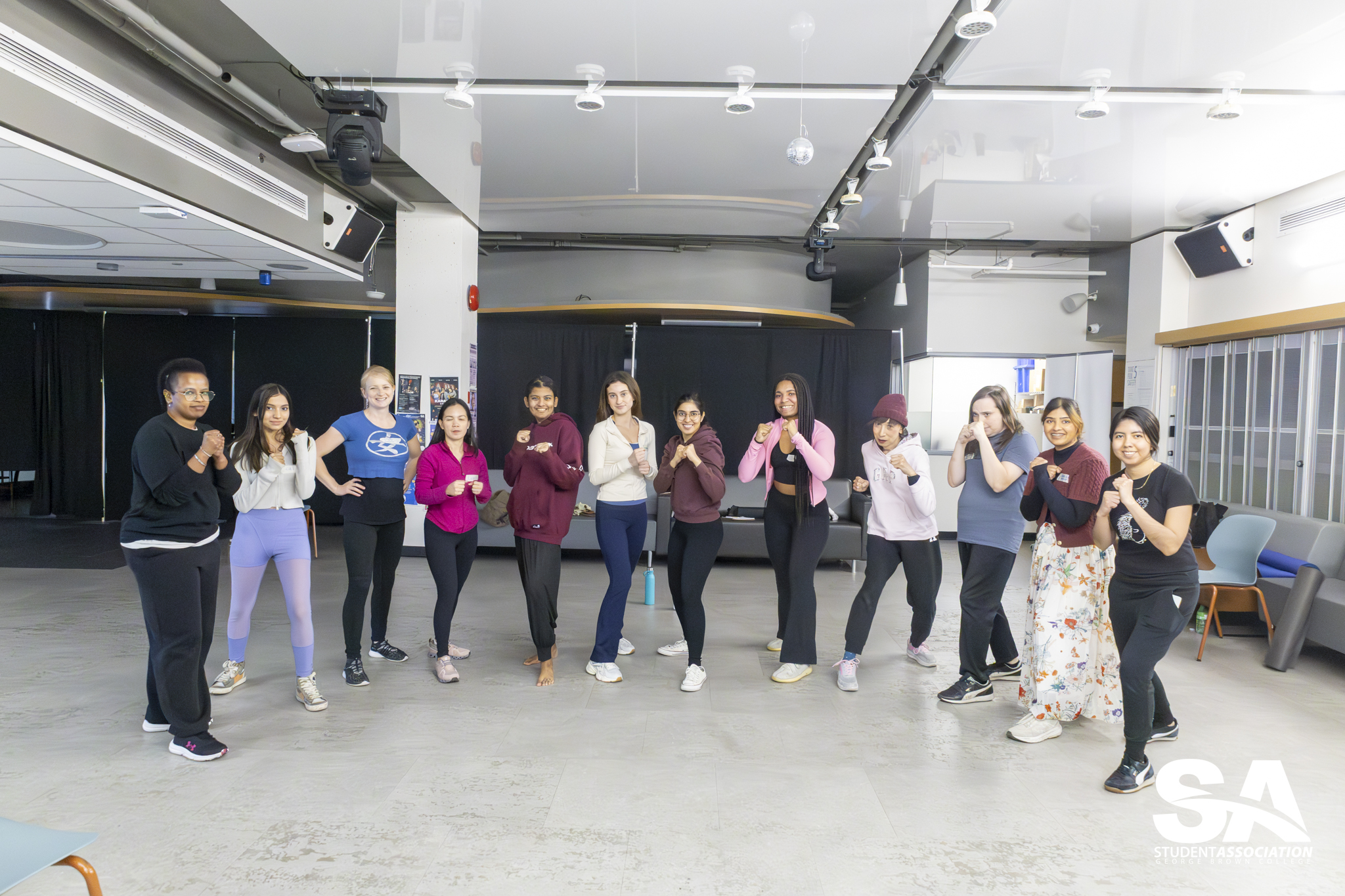Wen-do returns to GBC campuses.
Women’s safety remains a critical issue that continues to demand attention.
Many women still face challenges feeling safe in their homes, workplaces, educational institutions, and public spaces. About 35 per cent of women worldwide have experienced sexual harassment, yet fewer than 40 per cent seek help. Less than 10 per cent report incidents to law enforcement notes a report by the World Population review.
Helping to empower women and those who identify as female, the Student Association of George Brown College (SAGBC) has long hosted self defense workshops known as Wen-Do.
The program combines practical self-defense techniques, verbal strategies, and awareness training, challenging societal narratives that undermine women’s autonomy. By the end of the course, participants often feel stronger, more confident, and prepared to assert their boundaries and protect themselves.
Leslie Allin, instructor, emphasized the importance of such initiatives in creating safer communities and helping women recognize their strength.
The most recent training session took place Oct. 25, coordinated by the SafeWalk department.
Allin notes that violence against women and girls is often rooted in misogyny and societal power imbalances, where control over women’s bodies and autonomy is asserted. She added that Wen-Do programs address these specific forms of oppression, challenging harmful narratives and equipping participants to recognize, resist, and respond to situations that threaten their safety and agency.
In the basic Wen-Do course, participants learn a wide range of self-defense techniques, including hand strikes, kicks, blocks, elbow strikes, and releases from wrist holds or chokes. Training covers defending oneself from different positions, as well as responding to attackers from behind.
The course also emphasizes verbal self-defense and strategies for handling more complex scenarios, including multiple attackers or assailants with weapons. Throughout the program, participants engage in extensive hands-on practice to build confidence and skill.
Allin also discussed during training the importance of breaking through stereotypes around victim blaming.
“A lot of the messages we get, living in the world tell us that we’re being too paranoid or too sensitive, we’re overthinking something, or this person’s actually a really nice guy maybe he’s just lonely or whatever,” she said. “Yet, we remind ourselves we’ve got a right to put our feelings first, put our feelings and our safety over somebody else’s real or hypothetical feelings. We’ve been taught that we’re responsible for somebody else’s feelings yeah? We’re not. That’s a myth.”
In the training session, Allin sat with the participants, leading a discussion where everyone took turns responding to her questions. She talked about how Wen-Do focuses on breaking down myths about different types of violence — how it occurs, where it happens, and who is most likely to commit it.
Allin expressed hope that women learn to feel entitled to assert and uphold their boundaries. She explained that, despite being taught that their options for self-defense are limited, women actually have far more choices and strength than they are often led to believe.
“We have a right to be fierce, to be strong in our bodies and in our entitlement to our own boundaries.”


